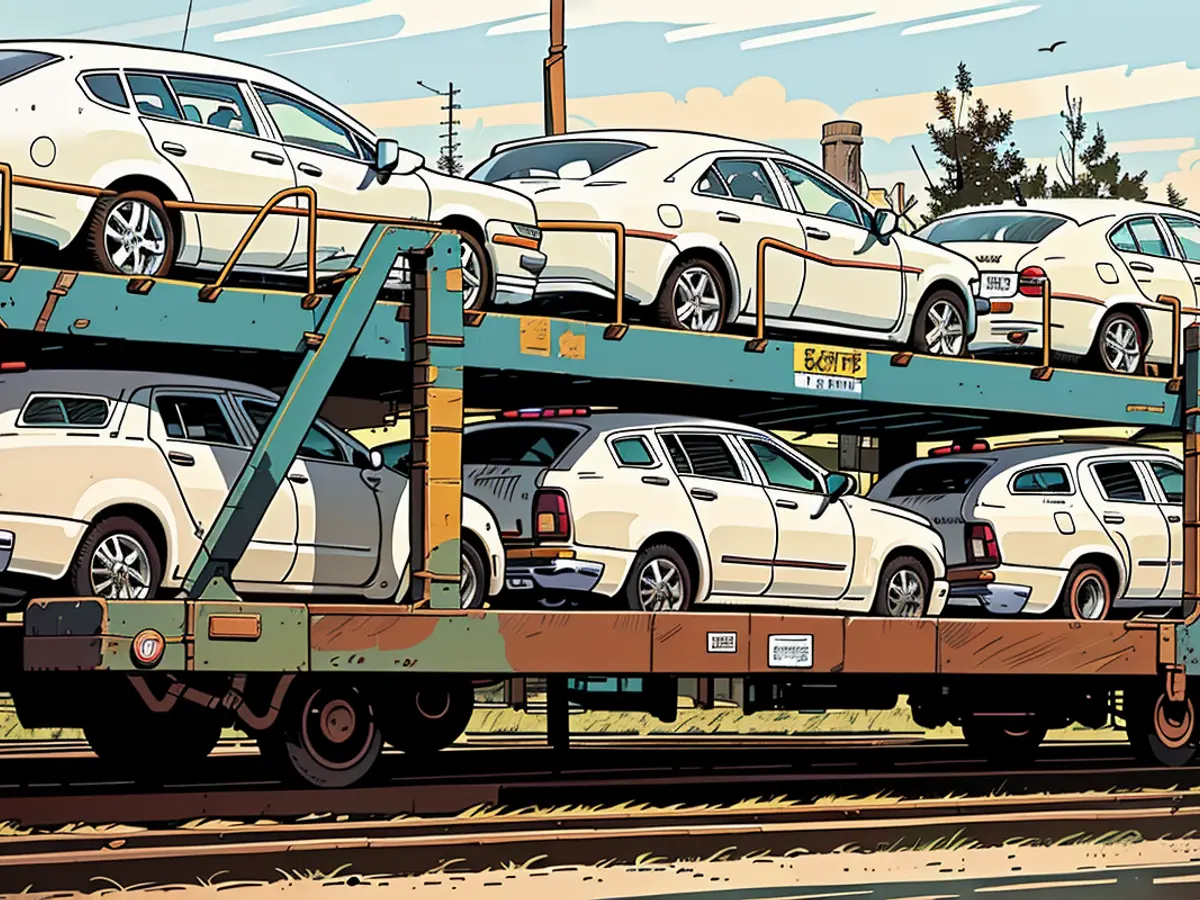Automobile sales drop significantly by about 30%
The newest automobile market is experiencing a decrease, especially in the realm of electric vehicles, which are seeing substantial losses compared to the year prior. An expert suggests various reasons for the challenging circumstances, including some external factors influencing the balance.
The registration of new vehicles in Germany took a significant dive in August, as reported by the Federal Motor Transport Authority (KBA), with a 27.8% decrease compared to the same period the previous year. This decrease is mainly attributed to the declining interest in electric vehicles, but it's not just the electric market that's suffering - all other drive types saw significant drops as well.
According to the KBA, only 69% as many electric vehicles were registered in August compared to August of the previous year. The decline was 24.4% for diesel cars and 7.4% for gasoline cars.
Consumer confidence in Germany is low
Constantin Gall of consulting firm EY attributes the current slump in the German new car market to temporary factors rather than a negative trend reversal, but he emphasizes that the climate remains tense. The gap to pre-crisis levels is still substantial, and the current numbers are far from a sustainable recovery. In the first eight months of the year, around 590,000 fewer new cars were sold in Germany than in the same period before the coronavirus pandemic.
Gall outlines several reasons for the persistent sales weakness in Germany: "The German economy is failing to pick up speed, and consumer confidence and investment sentiment among private individuals and companies are dismal," he said. "Geopolitical tensions and armed conflicts are impacting the overall mood. There's no indication of any positive turning point."
Electric vehicle incentives skew the numbers
The low number of electric vehicle registrations leads EY to point out that more electric vehicles were registered in August 2024 than would normally be expected. This surge in registrations was due to last-minute purchases by commercial clients, who rushed to take advantage of the company subsidy before it expired on September 1, 2024. According to the KBA, 13.7% of the new cars registered in August 2025 were pure electric vehicles - EY describes this as the "new normal". From January to August 2024, the share of electric vehicles in all new registrations was 18.6%.
Car production in Germany saw an increase in August compared to the previous year, with 313,700 passenger cars manufactured - a 24% increase over August 2024. However, overall production remains lower than pre-pandemic levels, with around 2.7 million cars produced in Germany between January and August - 2% less than in the previous year. "Compared to 2019, production is still 14% lower after eight months in the current year," the VDA noted.
Manufacturers of electric vehicles in Germany might be concerned about the decreasing registrations, as only 69% as many electric vehicles were registered in August 2022 compared to the same period in 2021. Additionally, the struggle in the German new car market isn't exclusive to electric vehicles, as diesel and gasoline cars also saw significant drops in registrations.








